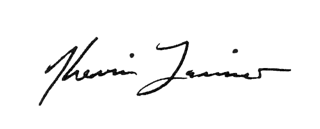Writing the Hard Thing
My mother was a registered nurse for over forty years. She developed the first memory care unit in the rural Wisconsin county where we lived, and I remember as a young boy occasionally tagging along when she needed to stop in during her off hours to do this or that as director of the place. Even then I understood the importance of her work, but it was still deeply unsettling for me to walk into “the home,” as she called it, and see up close the effects of dementia and Alzheimer’s disease (on which extensive research was, at the time, only beginning). I distinctly recall one afternoon when an elderly woman, clutching a doll, slowly walked directly toward me in the hallway, a hand outstretched. I wish I’d had the courage and presence of mind to interact with her, to just let her get near, but I was so young. I quickened my pace to catch up to my mom, who was as usual already three strides ahead of me (God bless the fast-walking nurses of the world) checking in on a resident or signing off on a medical form.
I like to think there were memories of that work still accessible to her when my siblings and I recently helped our mom into her new room at an updated version of the kind of memory care unit she started decades ago. It was a painful decision, long-considered, but it was clearly time, and she took to it quickly, tapping her toes during her first group activity, a sing-along that had the collateral effect of imbuing Neil Diamond’s “Sweet Caroline,” a song that had previously meant nothing to me, with so much emotional significance that I am afraid to listen to it again. She has good days and bad days or, rather, bright moments and dark moments, as anyone who has cared for a loved one with Alzheimer’s can attest. But I know there is a part of her that is truly at home.
I write about this at the risk of oversharing, dear reader, because I feel I must—not only to unpack complicated emotions and experiences, as writers do, but also to demonstrate the importance of writing the hard thing. Sometimes that thing is the new and unknown, as Michelle Wildgen explores in “On Discomfort: The Creative Gift of Being Out of Your Depth,” or the systemic and barely disguised, as Roohi Choudhry recounts in “The Ungrateful Stranger: Whose Story Deserves Welcome?,” or something deeply, personally gripping, as Nicole Aragi explains to Vivian Lee in “Agents & Editors.” Currently there seems to be no end to the challenges we must confront. I wish you the courage to write what truly matters to you—and the resolve to write the hard thing.







